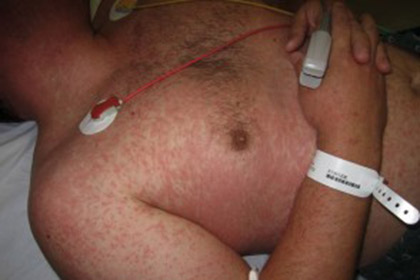
The World Health Organisation (WHO) and UNICEF are calling on Pacific communities to vaccinate against measles in response to recent outbreaks of measles in Tonga and Samoa.
The organisations also urge the public to ensure they are immunized prior to travelling internationally, attending sports events or other large community gatherings. Parents are also strongly urged to vaccinate their children against the disease as it provides the safest and best protection against measles.
This comes after Tonga’s Ministry of Health issued a health advisory reporting confirmed cases of measles on 22 October. On 16 October, Samoa’s Ministry of Health declared a measles outbreak.
In response to these recent outbreaks, UNICEF and WHO said in a media statement on 6 November they were continuing to provide support and resources to help Pacific Island countries prepare and respond to the threat of measles.
This included providing 89,000 vaccines to help protect at-risk populations including children, and in raising public awareness about the disease and the importance of vaccination.
In addition, support was being provided on the surveillance and outbreak responses, access to laboratories for testing, and provision of medical supplies.
UNICEF Pacific Representative Sheldon Yett said children are the most at risk during a measles outbreak.
“UNICEF is working together with WHO to support governments in the Pacific to respond to those communities affected and to ensure vaccines are readily available to reach children with lifesaving vaccines as quickly as possible.”
At least 95 per cent immunization coverage was needed to achieve ‘herd immunity’ for measles as recommended by WHO. This helped protect communities by slowing or stopping the spread of the virus by ensuring most of the population is immune.
Herd immunity also provided the best protection for the most vulnerable members of our community who could not be vaccinated, including young infants, unvaccinated pregnant women and individuals with weakened immune systems.
In the Pacific, as in other parts of the world, some countries have yet to reach this target which means they are at greater risk of outbreaks.
WHO’s Representative to the South Pacific, Dr Corinne Capuano, said two doses of the measles vaccine provided the greatest protection from the disease –at around 99 per cent.
“People who are travelling internationally can also help protect themselves and Pacific communities by making sure they are immunized before departure. This will prevent the virus from spreading.”
She said it was critical that children and adults ensure they are up-to-date with their vaccinations, as per their national schedule. Travellers who are uncertain of their measles vaccination status should receive at least one dose of vaccine at least 15 days prior to travel.
Measles is a serious, very infectious disease caused by a virus. It spreads easily from person to person through the air, by breathing, coughing and sneezing. Anyone who hasn’t previously had measles or been immunized with a measles vaccine can get measles.



